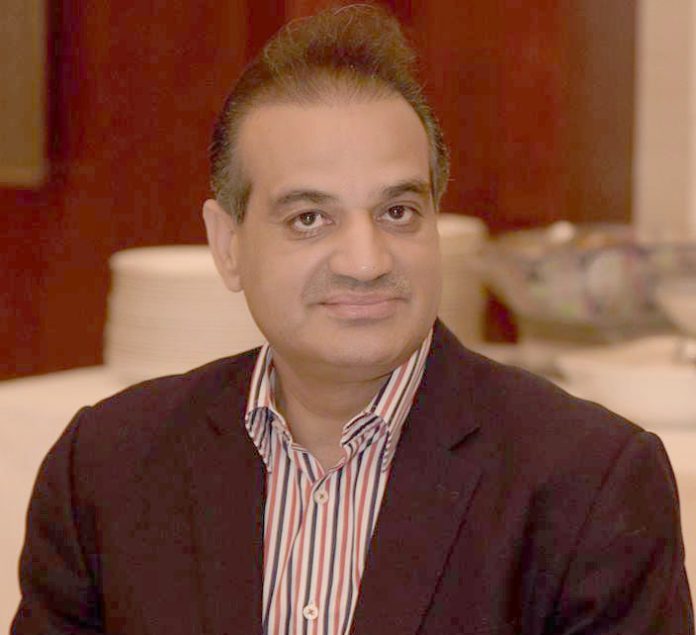Comment
Ansar M Bhatti
The current administration is poised to step down today, following the Prime Minister’s declaration of the National Assembly’s dissolution on August 9. This action sets the stage for scheduled elections slated for November later this year. However, an unexpected twist occurred as the Prime Minister personally advocated for the elections to align with the forthcoming census results. This stance implies a potential postponement of the elections by up to four months or so. In this case, the national elections should take somewhere in February next year. Interestingly, it is still not clear whether the elections would take place as per the wishes of the politicians. The only factor that may contribute towards holding of elections on time appears to be the Senate elections in March next year. It is evident that political parties will earnestly endeavor to orchestrate elections well in advance of this pivotal date. Their motivation lies in the strategic advantage gained by positioning themselves for a potential ascendancy in the Upper House of the Parliament.
The outgoing Foreign Minister Bilawal Bhutto Zardari in his address in the National Assembly on August 7, 2023 expressed doubts about timely holding of the elections. In other words, he did not see a bright future for the allies ruling the country at the moment, in terms of their relations with the powers-that-be. Similar doubts have also been expressed by the other coalition partners. Most of them are of the view the sole purpose of bringing them to power was to get rid of Imran Khan and cut the PTI to size. Since the objective has successfully been achieved therefore they may not anymore relevant for those who brought them into power. Pakistan’s politics is the name of surprises and upheavals. Today’s enemies can be tomorrow’s friends. Pakistan’s political narrative is characterized by its propensity for surprises and transformative alliances. The PML-N and PPP’s reconciliation and the re-emergence of PTI are both vital elements in this narrative. By recognizing the intricacies of these developments, the way should be paved for a more inclusive and dynamic political landscape, where all stakeholders can contribute to the nation’s progress.
By and large the caretakers are picked up well before the end of the term of the sitting government however it is taking long simply because this time the caretakers are likely to be given and extended mandate, which to some, may span over two years if the hurdle of the Senate elections is tackled amicably. Why the caretakers for a longer period? There is a perception even among the powerful circles that the immediate elections would bring the same set of politicians’ back, which means further instability and economic downturn.
The PML-N appears to be the front-runner when it comes to formation of the next government albeit the party may not be allowed to get simple majority. The PML N supremo Nawaz Sharif was to return to Pakistan last month when he traveled all the way from UK to Saudi Arabia however the deal he was offered was not acceptable to him so he preferred to return to the UK. Sources close to that development say the PML-N was offered government but with limited seats. The party instead wanted to have majority so that it could form the government without forging alliances with other parties. This demand was not acceded to, the sources claim.
The future of PTI depends upon the future relations between the PML –N and the Establishment. If things do not go well then PTI may be an option, sans Imran Khan. Even if things go well, PTI may be retained as the potential opposition party with a view to keep the sitting government in its toes. PTI ostensibly enjoys huge public support therefore it needs to be given equal opportunity of contesting the elections in a free manner.
When reflecting upon the eighteen months of this coalition government, it becomes abundantly clear that it operated without a cohesive sense of governance, authority, or direction. The underlying issue was readily apparent: an excess of leaders vying for control within the same administration, inevitably resulting in a lack of clear purpose and consistency.
During this period, the government seemed to function without a unified vision, causing its actions and decisions to appear disjointed and haphazard. The absence of a singular direction created an environment where various agendas clashed, leading to confusion and indecision.
The imagery of too many captains aboard a single ship vividly encapsulates the root cause of this turmoil. With multiple individuals attempting to steer the vessel, each with their own ideas and priorities, the resulting lack of coordination naturally led to a sense of wandering off course. Given these circumstances, it is increasingly unlikely that either of the major political parties, namely PML-N or PPP, will pursue a coalition government in the foreseeable future. This likelihood is particularly diminished for the PML-N, as its leadership holds the belief that the period of PPP’s governance characterized by poor decision-making and ineffective administration has cast a shadow over their own ‘accomplishments’.
Pakistan faces a pressing challenge where individual agendas consistently overshadow the broader national interests, resulting in a landscape burdened by multifaceted crises. What’s urgently required is a transformative figure who possesses the ability to rise above personal motivations and wholeheartedly prioritize the well-being of the nation. The pertinent query that emerges is whether such an individual can be found within the ranks of the existing political parties. Regrettably, the answer appears to be in the negative.
However, it also remains a fact that change takes time and requires a collective effort. While finding a single individual who perfectly embodies these qualities may be challenging, building a culture that promotes national interests over personal interests can lead to a more prosperous and harmonious Pakistan.

















